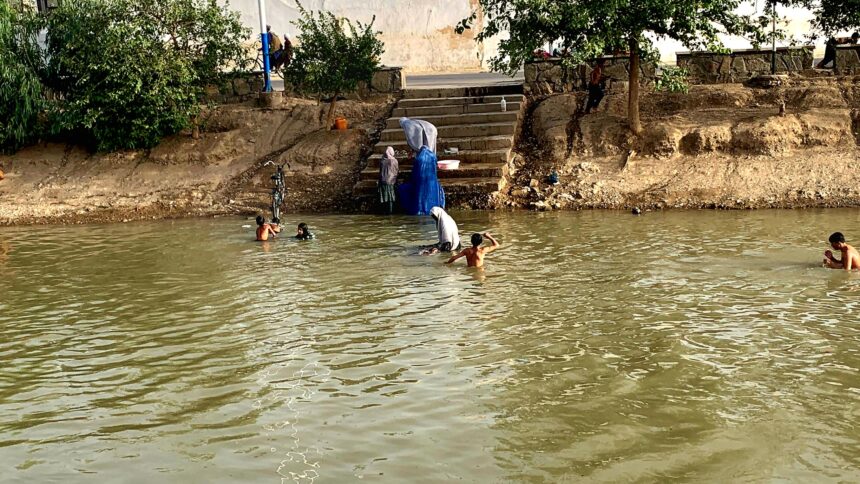The Taliban have introduced yet another restriction on Afghan women, this time banning them from washing clothes, carpets, and household items at public water sources such as canals, ponds, and reservoirs in Kandahar province — the base of Taliban supreme leader Hibatullah Akhundzada.
According to a credible local source, the order came from the Taliban’s Council of Scholars, which decreed that women are no longer allowed near public water points. Anyone who violates the order risks punishment.
For generations, women in Kandahar gathered at canals and water reservoirs not only out of necessity — particularly amid chronic drought and water shortages — but also as one of the few opportunities to step outside their homes and connect with other women. These gatherings offered a rare chance for social interaction, mutual support, and a sense of community in a society where women’s public presence is severely restricted.
Now, even this space of relief has been taken away.
One Kandahar woman told The Afghan Times:
“We used to go outside and wash clothes in canals and ponds. It was our chance to meet other women, talk, and share our problems. Now we are forced to wash inside the house, where there is little water and no space. It has disrupted our lives completely.”
She added that water scarcity in Kandahar has already forced families to depend heavily on public water sources. “This ban has created chaos in many homes,” she said.
Another woman highlighted the broader impact:
“Washing at water sources was not just about cleaning clothes. It was about being outside, seeing other women, and feeling part of society. Now even that small freedom has been stolen from us.”
Civil society activists have also condemned the decision. Kandahar-based activist Mohammad Wasil Nayab called the ban “another attempt to erase women from public life.” He added:
“These restrictions don’t just limit women’s freedom — they dismantle the social and economic fabric of our communities.”
Human rights organizations, including UNAMA, Human Rights Watch, and Amnesty International, have repeatedly warned that the Taliban’s policies amount to systematic gender persecution. They argue that confining women entirely to the home not only violates international law but also contradicts Islamic principles of dignity and community.
Taliban officials defend such measures as protecting “Islamic modesty” and women’s security, but critics say the policies exploit religion to control and silence women.
The ban in Kandahar reflects a broader pattern: the steady erasure of Afghan women from public spaces. What was once a cultural norm — women gathering at canals to carry out daily chores — is now forbidden. For many women, this was one of the last ways to experience freedom, solidarity, and connection beyond the walls of their homes.








